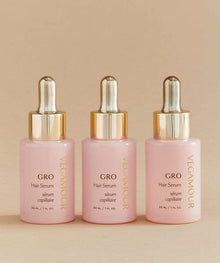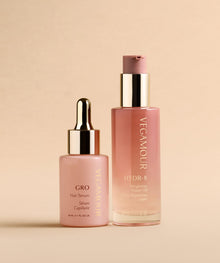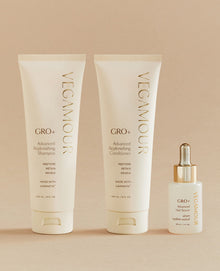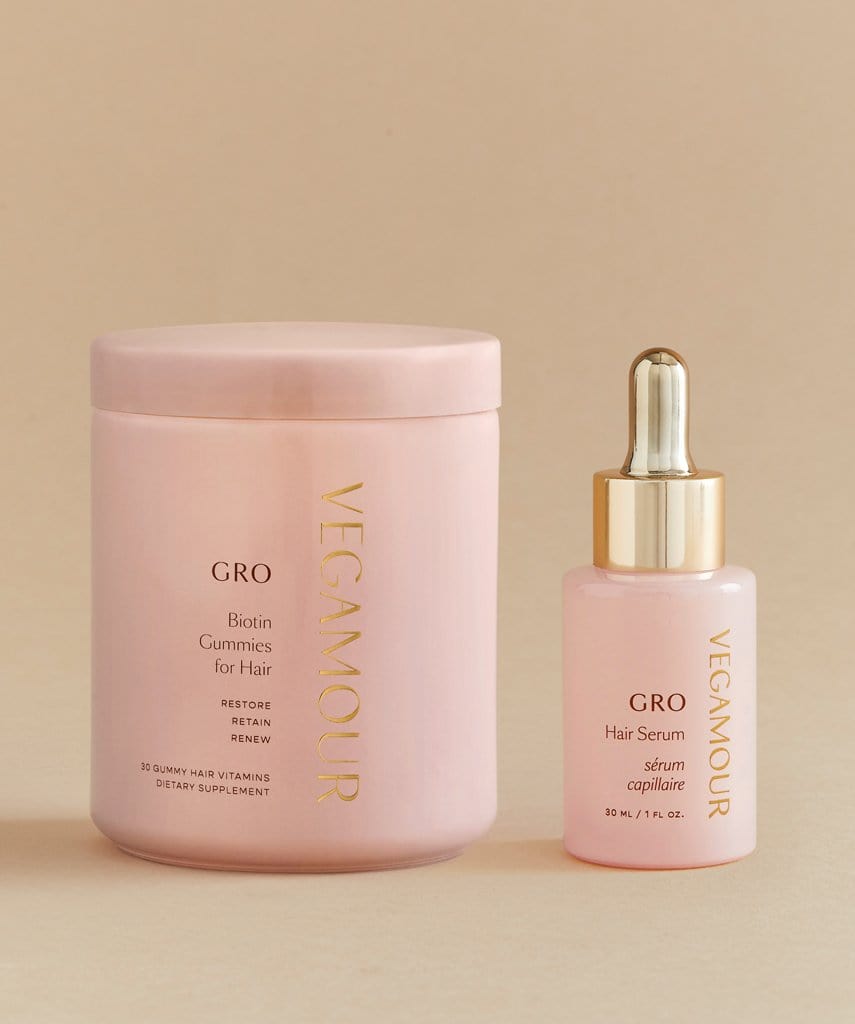The 8 Gray Hair Myths You Need to Know for Healthier Strands
Going gray can be a stressful experience. When you spot that first gray strand, it’s tempting to go into a panic. You wonder if your hair will lose all its color or if more gray will grow back if you pull out the offending strand. Unfortunately, there are so many myths, untruths and sources of confusion regarding gray hair that many of us don’t know where to begin.
Whether you’re going gray or simply thinking about the challenges your aging strands face, it’s important to understand the science behind gray hair. Here are the nine most common gray hair myths that need debunking — plus, find out what products you need to maintain your hair's natural pigment and delay the gray.
1. Gray Hair Is Due Solely to Genetics — Not Lifestyle
It’s tempting to blame your parents for your graying strands, but genetics are only part of the picture. Lifestyle choices such as smoking and vitamin deficiencies have been linked to hair graying. Stocking up on supplements and eating the rainbow of fruit and veggies every day can help you keep the grays at bay for longer — no matter how your mother looked at your age!
2. Dyeing Your Hair Causes Premature Graying
There’s a persistent myth that coloring strands causes premature graying. Fortunately, that isn’t true. However, overdyeing can cause hair to become dry and brittle, so if you like changing your hair color, make sure a deep conditioning mask is part of your hair care routine. Also, stay away from shampoos containing harsh chemicals, which can strip your strands of color, leading to a faded appearance.
Shop: Nicole Franzel's Healthy Hair Product Picks
3. Your Hair Only Turns Gray at a Certain Age
It’s common to associate gray strands with older people, but the truth is your hair can lose its pigment at any age. Factors such as vitamin deficiencies, oxidative stress and genetics can impact on your strands, causing you to lose pigment well before retirement age.
VEGAMOUR’s new GRO AGELESS Gray Delay™ Hair Supplement can help mitigate these factors, allowing your hair to retain its natural color for longer. The supplement contains essential minerals and nutrients to prevent premature graying; antioxidants and minerals to combat free radicals and reduce shedding; and botanicals to reduce stress, improve sleep and increase relaxation. With 90 days of consistent use, you can see less gray hair and increased natural color!
Shop: GRO Ageless Collection
4. Sun Can Turn Your Strands Gray
Let’s face it, UV exposure is bad news for your beauty routine. Going out in the sun without proper protection can accelerate skin aging, causing wrinkles and sun damage — plus, it can dry out your hair, leaving it prone to damage. So wearing a hat is always your best bet. The sun won’t make your strands turn gray, but it does cause stress on your hair, which could, in turn, accelerate the appearance of grays.
5. Gray Hair Is Naturally Coarse
Because gray hair can often feel more rough and coarse than colored strands, many people assume the structure of the follicles are fundamentally different in some way. However, this isn’t the case. The increased coarseness of gray hair is caused by the slowdown in sebum production aging follicles exhibit as they stop producing melanin, meaning your hair has less of its naturally hydrating oils. A deep conditioner and moisturizing shampoo can help reintroduce hydration into graying strands, eliminating the dryness that causes its wiry texture.
Also: How to Stop Gray Hair Naturally
6. If You Pluck a Gray Hair, Seven Will Grow Back
The idea that plucking one gray strand leads to a crop of new ones is a old wives’ tale. The myth might stem from the fact that you notice grays more once you start looking for them, but that doesn’t mean plucking is a good idea. It can cause damage to your follicles and stress out your scalp. Instead, use the appearance of an odd gray hair or two as your cue to step up your self-care routines and slow down further graying before it starts.
7. Gray Hair Is Hard to Style
Because gray hairs tend to be drier, they can often seem a little less manageable than pigmented hair. However, just because your sebum production has slowed doesn’t mean your style should suffer! By using deep conditioners, masks and other hydrating products, you’ll be able to reintroduce moisture to the hair. Styling products with moisturizing ingredients like natural botanical oils can help keep your hair happy and hydrated.
8. Gray Hair Won’t Grow Long
Last but not least, so many of us think that gray hair means it’s time to get a short, no-nonsense haircut. Although hair growth naturally slows with age, that doesn’t mean you have to resort to a hairstyle that’s less than flattering. With the proper routine of products to support hair wellness and growth, you can keep your hair growing long and lovely even if you’re all gray.
Consider VEGAMOUR’s new plant-based GRO AGELESS Anti-Gray Hair Serum. It’s formulated with a blend of peptides, fo-ti, glycoproteins, caffeine and vitamins and has been clinically proven to significantly reduce the appearance of gray on new hair growth while restoring color and shine to graying strands. In clinical studies, 64% of users saw less gray hair in as soon as 90 days, and 71% said their hair appeared healthier!
Ignore the Myths and Embrace the Science
Now that you know the truth about gray hair, you can ignore all those pesky myths floating around and focus on the science. If you’re looking for a way to delay additional gray hair and restore color and shine to existing gray strands without having to resort to dyes, VEGAMOUR has the answer. Our plant-based products, which are clinically proven to reduce the appearance of grays while supporting hair health, are the solution you need to help you achieve your best hair yet!
More From VEGAMOUR
- Shop: Color-Safe Shampoos and Conditioners
- How to Disguise Gray Hair With Highlights
- 4 Foods to Eat to Delay Gray Hair, According to a Nutritionist














